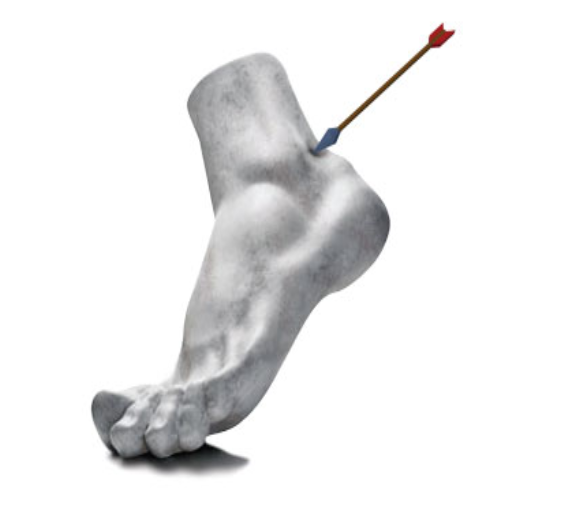Pride and Self-worth
The message I heard in church last Sunday was about pride. It was the second week in the series. The pastor discussed how the story of the Greek God Achilles provided the foundation for the saying ‘Achilles Heel.’ According to history an Achilles’ heel is a weakness in spite of overall strength, which can lead to downfall. While the mythological origin refers to a physical vulnerability, idiomatic references to other attributes such as pride that can lead to downfall are common. And in almost every person’s life there is an Achilles Heel. And in every person’s life there is an area where pride exists. We all know the phrase, “Pride goes before the fall” and all of us can probably recall many situations where this was appropriate in our own lives or that of others. You may not be aware of it though. So, at the end of the service we were provided a set of question which relate to having pride embedded within our lives.
Here they are:
- Who or what are you most critical of?
- Who do you secretly envy?
- When are you most tempted to lie? (or tell a white lie?)
- Is there something you won’t ask for help on?
- What or who do you desperately want to control?
- Where do you find yourself hiding who you really are?

I dug a little deeper and found that pride is a huge obstacle to a positive self-worth. So, I took the same questions and related them to how many of us allow pride to intimidate our self-worth. Here are how these questions impact your self-worth:
- Pride can erode our sense of self-worth when we are critical of ourselves. And it inhibits our ability to connect when we are critical of others.
- Pride shames us into the belief that we are not enough and turns our eyes to a vision of what you think you need to be.
- Pride whispers to you that what you have to say is insignificant, so you lie or manipulate the truth so you can look good.
- Pride injects fear into thinking that you are not worthy of anyone coming into your circle to help you and it closes your mouth.
- Pride wants you to take control of others because you have no control of yourself. Self-worth provides knowledge that you control only what you can control.
- Finally, pride casts a shadow so you can stay in the dark, afraid of what others might see.
But it is all a lie! You can eliminate those prideful thoughts to shine a bright light into the world! So, ask yourself those questions, write them down with your answers, and see what you can uncover that will bring you closer to a positive self-worth.
I went a little further and found some steps you can take to counteract pride in your life.
- Identify the lies you are believing. Pride’s strategy is to get you to believe something that is not true. Once you identify the lies you can replace them with the truth.
- Own your mistakes. You may deny taking responsibility for your actions because it does not align with your controlling desires. Admitting you can be wrong opens your heart to the realization that you are human.
- Embrace constructive criticism. We get defensive and don’t seek out feedback. Getting another point of view provides you with an accurate perspective of yourself. This is also leads you to increased ability to ask for help.
- Stop comparing yourself to others. When you envy others you erode your sense of self -worth. The healthiest form of self-worth, however, is connected to who you are, not who you think you need to be to satisfy the outside world.
- Praise others. This takes some courage if you are constantly critical of others. When prideful people attempt to give the spotlight to another person, they feel like they are diminishing their own achievements. Taking a back seat to the spotlight helps you lift yourself as you develop as a caring human.
- Serve others. As you take some of these steps and are consistent in putting them into practice, you learn to be humble and start to realize that putting others before yourself doesn’t come at a cost to who you are. In fact, you will soon find that when you give you will receive more in return.
